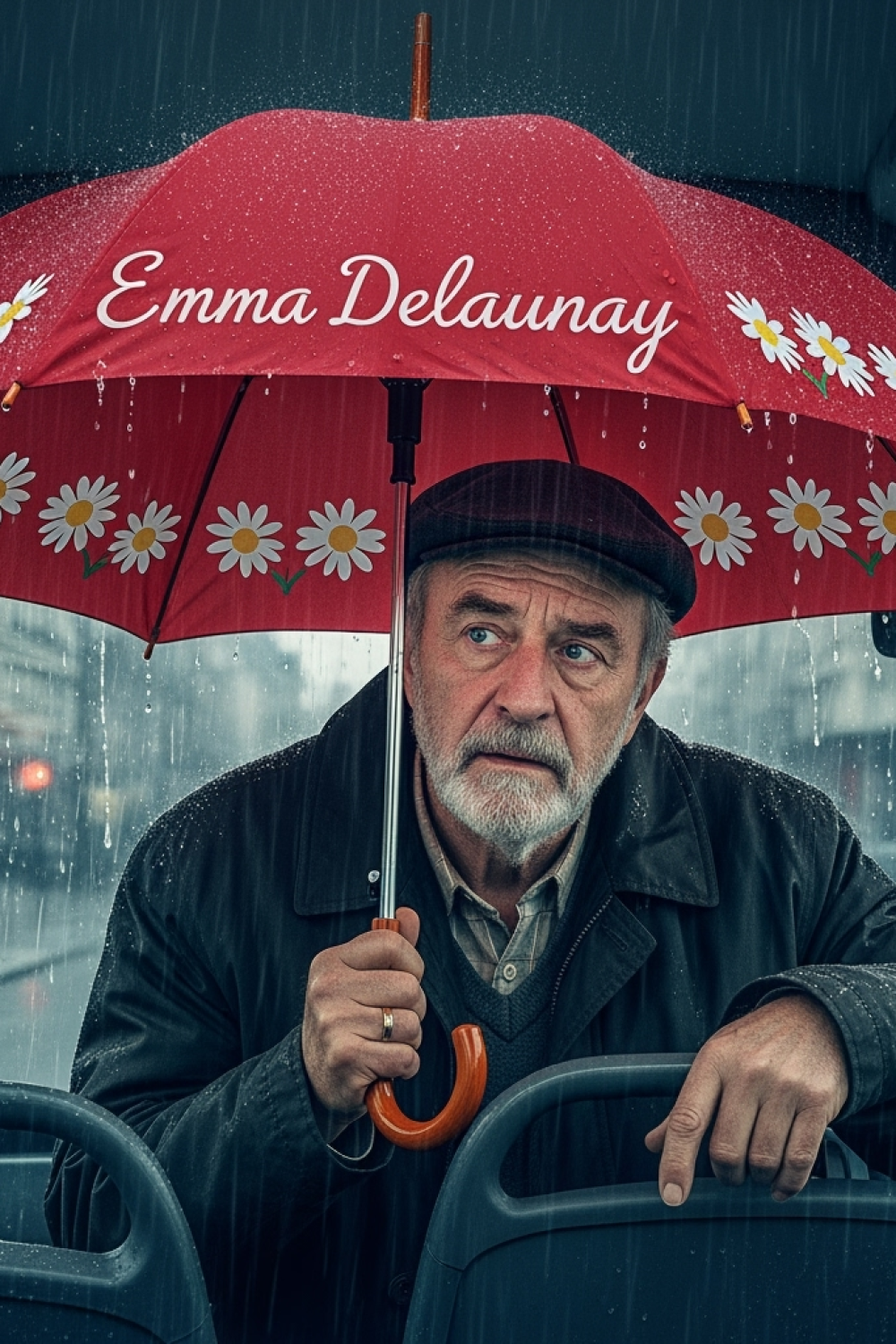Want to save this recipe?
Enter your email below and we’ll send the recipe straight to your inbox!
The Ghosts Hanging in the Rearview Mirror
Joseph gazed at the umbrellas hanging silently at the back of his bus. Six today, added to the dozens of others piled up in his closet at home. The Parisian rain created serpentine rivers on the foggy windows of bus 67. Twenty-three years he had been driving this route, and twenty-three years he had been collecting these forgotten witnesses of unexpected downpours.
“Last stop, Gare du Nord,” he announced into the tired microphone. The last passengers disembarked, leaving behind the dampness of their coats and the ephemeral imprint of their presence.
Joseph sighed, ran a hand across his forehead where time had carved furrows, and made his usual rounds. Another umbrella, small, bright red, with a pattern of white daisies. He grabbed it, ready to hang it with the others, when his heart skipped a beat. A name was written in black marker on the plastic handle: “Emma Delaunay.”
His hand trembled. Emma. His daughter. Eleven years without seeing her, without hearing her voice. Eleven years since that argument that had collapsed their world like a house of cards in too violent a gust.
The Weight of Accumulated Drops
As days passed, Emma’s umbrella remained on Joseph’s kitchen table, like an exotic bird lost in an apartment too gray. Each morning, he would contemplate it while drinking his coffee, imagining his daughter’s fingers—now a thirty-year-old woman—gripping this handle.
In his bus, Joseph continued collecting abandoned umbrellas, but differently. He methodically noted dates, times, and descriptions of their owners, in the secret hope of being able to return them. Perhaps finding other people’s lost umbrellas would give him the courage to find his lost daughter.
“You should call her,” Martin, his colleague and only friend, would sometimes suggest, watching Joseph ruminate on his past in the break room.
“And tell her what? That I found her umbrella? That I’m sorry for judging her life choices, for rejecting the man she loved, for abandoning her when her mother died?”
The answer hung in the air, like a raindrop hesitating to fall. Joseph had looked up Emma’s address online. She lived in Montmartre, twenty minutes away by bus. So close geographically, so distant emotionally.
The Downpour That Changes the Course of Rivers
It was an exceptional downpour, even for Paris in November. A storm that seemed determined to wash away all the city’s sins, to flood all its accumulated resentments.
Joseph finished his shift early that day. An electrical problem had immobilized his bus. Returning home, soaked to the bone, he found Emma’s umbrella knocked over by the draft from a poorly closed window. He picked it up, and in this ordinary gesture, a certainty struck him with the force of lightning: he could wait no longer.
Without thinking further, he grabbed the red umbrella and went out into the storm. Line 80, transfer, then a climb up the steep streets of Montmartre, short of breath, heart pounding. Water streamed down his face, perhaps mixing with tears he hadn’t shed for decades.
The building stood there, an old Haussmannian edifice with tall windows. Joseph remained motionless in front of the intercom, his finger hovering over the button “E. Delaunay, 4th floor.” The rain hammered against the red umbrella he held tightly against himself, like a shield against his own doubts.
Finally, he pressed it.
“Yes?” A woman’s voice, altered by the crackling intercom but immediately recognizable.
His throat tightened. “Emma, it’s… it’s your father. I… I found your umbrella on my bus.”
The silence that followed seemed to last an eternity. Then a buzz, the door unlocking.
The Drops That Repair
The fourth floor seemed endless. Standing before the half-open door, Joseph stopped, breathless, the red umbrella clutched in his hand like an improbable passport to forgiveness.
Emma stood there, in the doorway. Her chestnut hair was shorter than before, her face more mature, marked by a life Joseph hadn’t shared. In her eyes, mistrust mixed with involuntary curiosity.
“That’s not my umbrella,” she said softly.
Joseph looked down at the red object. “But your name is on it…”
“I gave one like that to my daughter. For her first day of school. She’s seven now.”
A granddaughter. Joseph felt his legs weaken.
“Would you like… to come in for a moment? You’re soaked,” Emma offered, her voice wavering between distance and compassion she seemed to be trying to contain.
The apartment was modest but warm. Children’s drawings on the wall, books piled on a coffee table, the smell of a meal prepared earlier.
“She’s with her father today,” Emma explained, handing him a towel. “We’ve been separated for three years, but we remain friends. For her sake.”
These words, spoken without bitterness, struck Joseph as a silent reproach of his own inability to maintain bridges, to preserve bonds beyond disagreements.
“Her name is Lily,” she said, pointing to a photo on the refrigerator. A little girl with freckles smiled, proudly holding a small red umbrella with white daisies.
“She’s beautiful,” Joseph whispered, his voice breaking with emotion. “Emma, I—”
“It’s okay,” she cut in.
“No, it’s not. I should have been there. I should have called, come, tried…”
Emma looked out the window, where the rain continued to fall, but more gently. “You know what I always tell Lily? That sometimes, you have to wait for the storm to pass to see what remains standing.”
The Sky After the Rain
Some umbrellas don’t protect us from the rain, but allow us to walk together under the same storm.

